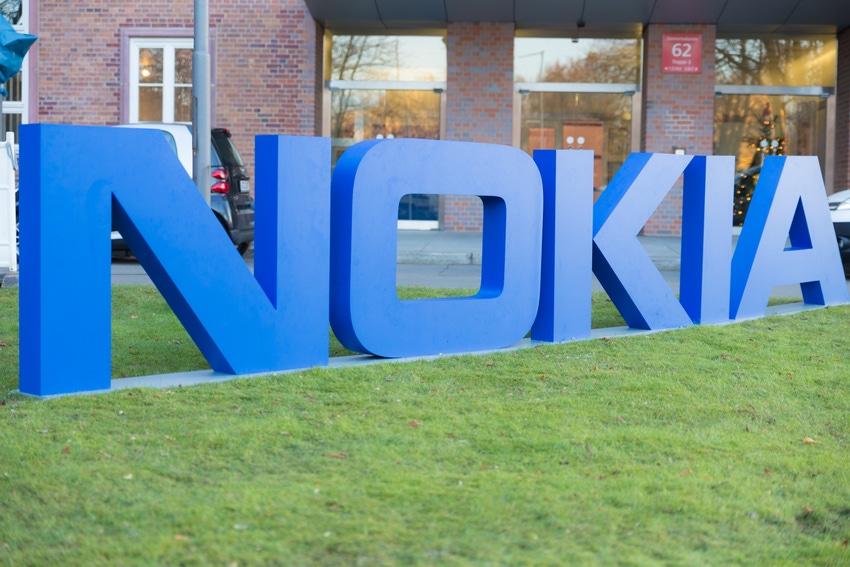Nokia reported net sales down by 7% in Q3 and lowered its 2021 outlook, causing its share price to plummet. It also unveiled a new strategy and organisational structure.
October 29, 2020

Nokia reported net sales down by 7% in Q3 and lowered its 2021 outlook, causing its share price to plummet. It also unveiled a new strategy and organisational structure.
Despite some recent wins in the 5G market, Nokia has yet to turn the corner to resolve the competitive disadvantage it admitted to a year ago.
Nokia’s quarterly net sales went down by 7% to €5.3 billion ($6.2 billion) from €5.7 billion a year ago. The company attributed the decline to “lower network deployment services”. Operating profit has improved to €350 million, up from €264 million last year, representing a 2-percentage points growth in operating margin to 6.6%.
Looking at the individual business lines, the decline in sales was almost across the board, with Networks, accounting for 78% of the total business, reporting a 7% decline and Software, which in most cases would be sold together with network equipment, going down by 14%. Only Group Commons, which includes the IP and fixed line business that came to Nokia via the Alcatel-Lucent acquisition but is the smallest business group, registered a 17% growth.
While Nokia was successful in holding its gross margin level and improving operating profit, the share price was battered (down by 17% at time of writing) on the outlook the company has for the whole year and for 2021. “Our financial performance in 2021 is expected to be challenging,” said Pekka Lundmark, the CEO.
He singled out the $6.6 billion Verizon deal lost to Samsung as another reason for the challenging outlook, as well as the need to increase investment in 5G. “We have lost share at one large North American customer, see some margin pressure in that market. We have decided that we will invest whatever it takes to win in 5G.” Nokia’s full-year 2020 outlook set operating profit margin at 8-10% and projected a 7-10% operating margin for 2021.
To turn its fortunes around, Nokia also announced a revamped strategy and a new organisation setup. Lundmark believed the communications industry is “undergoing profound changes, … a trend towards open interfaces, virtualization, and cloud native software… As we work to renew our strategy, we will ensure we are well positioned to leverage these trends, improve our performance and position the company for long-term value creation.”
Towards this end, the company is going to be organised into four business lines with P&L responsibility that are better aligned with customer buying behaviour. These include Mobile Networks, IP and Fixed Networks, Cloud and Network Services (which is tasked by Nokia to seize the new “network-as-a-service” opportunity), and the largely unchanged Technologies that will continue to monetise Nokia’s patent portfolio and license its brand. There will also be a horizontal sales and marketing organisation called Customer Experience to serve all business units.
Bell Labs, a crown jewel that came with the Alcatel-Lucent acquisition, will go under Strategy and Technology, another common function. The new organisation will become effective at the beginning of January. Nokia will communicate more details of the new strategy on its Capital Markets Day scheduled for March.
Hidden at the bottom of the new strategy announcement, Nokia cautioned that “changes referenced in this release may be subject to consultation with employee representatives in certain jurisdictions”, indicating there may be further job losses.
About the Author(s)
You May Also Like








.png?width=300&auto=webp&quality=80&disable=upscale)


_1.jpg?width=300&auto=webp&quality=80&disable=upscale)


.png?width=800&auto=webp&quality=80&disable=upscale)